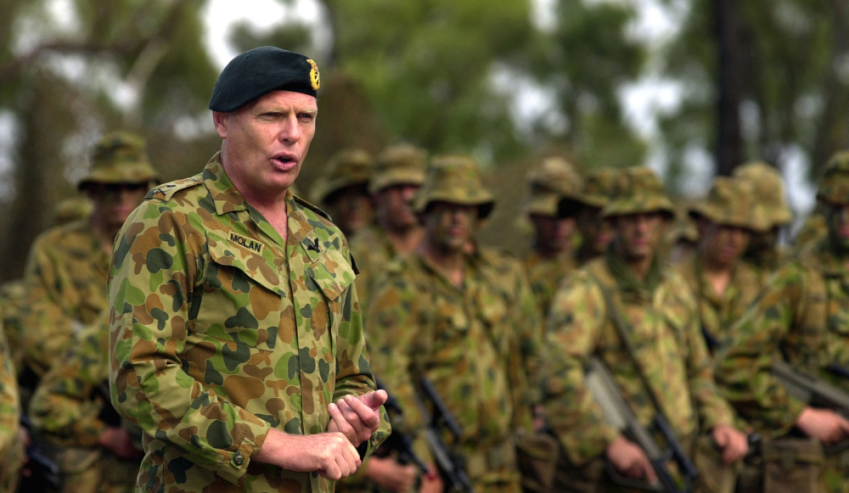Developing Australia’s military self-reliance and preparing for the possibility of a China-US war should be paramount for the Australian Defence Force, according to newly minted senator and former major-general Jim Molan.
In the politician's maiden speech to the Senate, Senator Molan said managing strategic uncertainty as long-term ally America undergoes a "relative decline" is crucial as China moves towards becoming the world's super power.
"My view is that we need to increase our self-reliance to manage strategic uncertainty through increased readiness, preparedness and all-round adaptability," Senator Molan said.
"War with China or involving China is not inevitable, and I've said this many, many times. We should welcome China's emergence as a world power, if for no other reason than it has lifted hundreds of millions of people out of poverty, but we, Australia, should welcome China from a position of strength."
While calling for Australia to welcome the rise of China, the former chief of operations in the coalition headquarters in Iraq said it is unlikely the US could come to the aid of Australia or other allies in extreme situations.
"I have failed to see for many years, despite any special relationships with any of its allies, how the US can come to the aid of all or even most of its allies in any extreme situation," he said.
"The US government and military now acknowledge this in their desire to refinance their military. Many US allies around the world, from the Baltic to the Sea of Japan, seem to have retreated into complacent dependency, based on the myth of infinite US power and resolve as a reason for underinvesting in their own defence self-reliance, and this affects all of us. The centre pole of Australia's defence policy tent, the US, may no longer stand as straight or as tall as we hoped."
And while the senator is in support of further increasing the nation's defence spend, he admitted it is unlikely the government will reach more than it's promised 2 per cent spend of GDP by 2021.
"I have no expectations that governments immediately spend one more dollar on defence, but for years I've advocated that we must be more open about the strategic risks that are being taken in the name of the Australian people. We should all know how much defence we get for what we spend, but we should also know how much risk we take for the money we do not spend," Molan said.
The former major-general, who spoke positively of the 2016 Defence White Paper, is calling for the government to develop an "output orientated" defence policy and outline how Australia plans to win the next war "in a generic sense".
"The most important part of any defence policy is the output: how Australia is going to deter the next war by being able to win it. Of course this requires governments to state what they consider the next war is going to be, and so define an output oriented defence policy. I reject the views of commentators and academics that it's too hard to determine this output," he said.
"Such a specification of the next war can be done in a generic sense, and it must be done or the necessary logic in our defence policy is totally absent. The US and the UK did it for years in terms of the kinds of wars they could win, and only abandoned it when it became politically too sensitive because of the self-induced defence shortfalls we see in those nations today."
The NSW Liberal senator replaced former Nationals deputy leader Fiona Nash after she was caught up in the dual citizenship saga. His maiden speech was watched in the Senate chamber’s gallery by Kim and Kerry Duffy, whose son Bryce was killed by a rogue Afghan soldier in 2011 on a parade ground in Afghanistan.

 Login
Login







